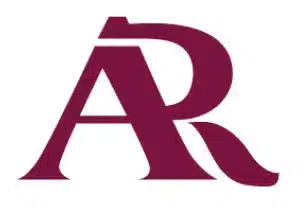Heroin Addiction Withdrawal

Heroin Addiction Withdrawal
Table of Contents
Understanding Heroin Addiction
According to recent survey data, approximately 438,000 people struggle with a heroin use disorder each year in the United States. This disorder affects both the mind and body and can be challenging to break free from without help and support. Repeated heroin use can create lasting changes in the brain’s reward network, leading to intense drug cravings and a loss of interest in activities outside substance use.1
What Causes Heroin Addiction?
There is no single cause of heroin addiction, but there are several risk factors that are associated with heroin use disorder, including:
Scope of Heroin Addiction
Signs and Symptoms of Heroin Addiction
- Using heroin in larger amounts or more often than intended
- Repeated but unsuccessful attempts to stop or reduce heroin use
- Spending a significant amount of time using, obtaining, or seeking heroin
- Experiencing cravings to use heroin
- Inability to fulfill obligations at work, home, or school due to heroin use
- Continued heroin use despite experiencing health, occupational, or social consequences
- Giving up on other activities or roles because of heroin use
- Using heroin when it is dangerous to do so, such as while driving
- Developing a tolerance to heroin
- Heroin addiction withdrawal symptoms when heroin use is suddenly stopped
Diagnosis of Heroin Dependency
Meeting just two of these criteria can result in a diagnosis of heroin use disorder. The dangers of heroin abuse are severe, with the most extreme side effect being death. In 2020, the number of deaths caused by heroin overdose in the United States was 13,165.3
Heroin Addiction Withdrawal
What Is Heroin Addiction Withdrawal?
Heroin Addiction Withdrawal Symptoms
- Restlessness
- Anxiety
- Runny nose
- Sneezing
- Sweating
- Shakes
- Fatigue
- Intense drug cravings
- Nausea
- Diarrhea
- Vomiting
Heroin Withdrawal Timeline
Heroin Addiction Withdrawal Medication
Fortunately, there is an effective treatment for heroin addiction and withdrawal. Attending a medically supervised detox center can provide most people with targeted medications that drastically reduce or eliminate the devastating effects of heroin withdrawal. Research has shown pharmacological treatment of opioid use disorders, such as heroin addiction, to be a well-established form of treatment, as it helps with therapy retention and higher recovery success rates.4
Two primary medications are used for heroin withdrawal: buprenorphine (also sold under the brand name Suboxone) and methadone. These two medications target the same regions in the brain as heroin but to a much lesser degree. As such, they can drastically reduce withdrawal symptoms without creating intense euphoria or future drug cravings.

Treatment for Heroin Addiction in Massillon, Ohio
Arrow Passage Heroin Addiction Treatment Programs
At Arrow Passage Recovery, we understand that everyone’s needs and situations are different. That’s why we offer a variety of options for our heroin addiction treatment program, such as medical detox, inpatient rehabilitation, outpatient programs, various therapies, and extensive aftercare support. Personalized treatment plans allow clients to receive the care that best suits them.
Our experience has shown us that anyone can recover from heroin addiction, provided they get the care they need from compassionate and understanding professionals. Don’t hesitate to seek treatment any longer. Call our facility today at 1 (855) 790-7389 and speak to one of our representatives about starting treatment and getting the help you deserve.
Resources
- https://www.samhsa.gov/data/sites/default/files/reports/rpt29394/NSDUHDetailedTabs2019/NSDUHDetTabsSect5pe2019.htm
- https://nida.nih.gov/publications/drugfacts/heroin
- https://nida.nih.gov/research-topics/trends-statistics/overdose-death-rates
- https://nida.nih.gov/publications/research-reports/heroin/what-are-treatments-heroin-use-disorder















